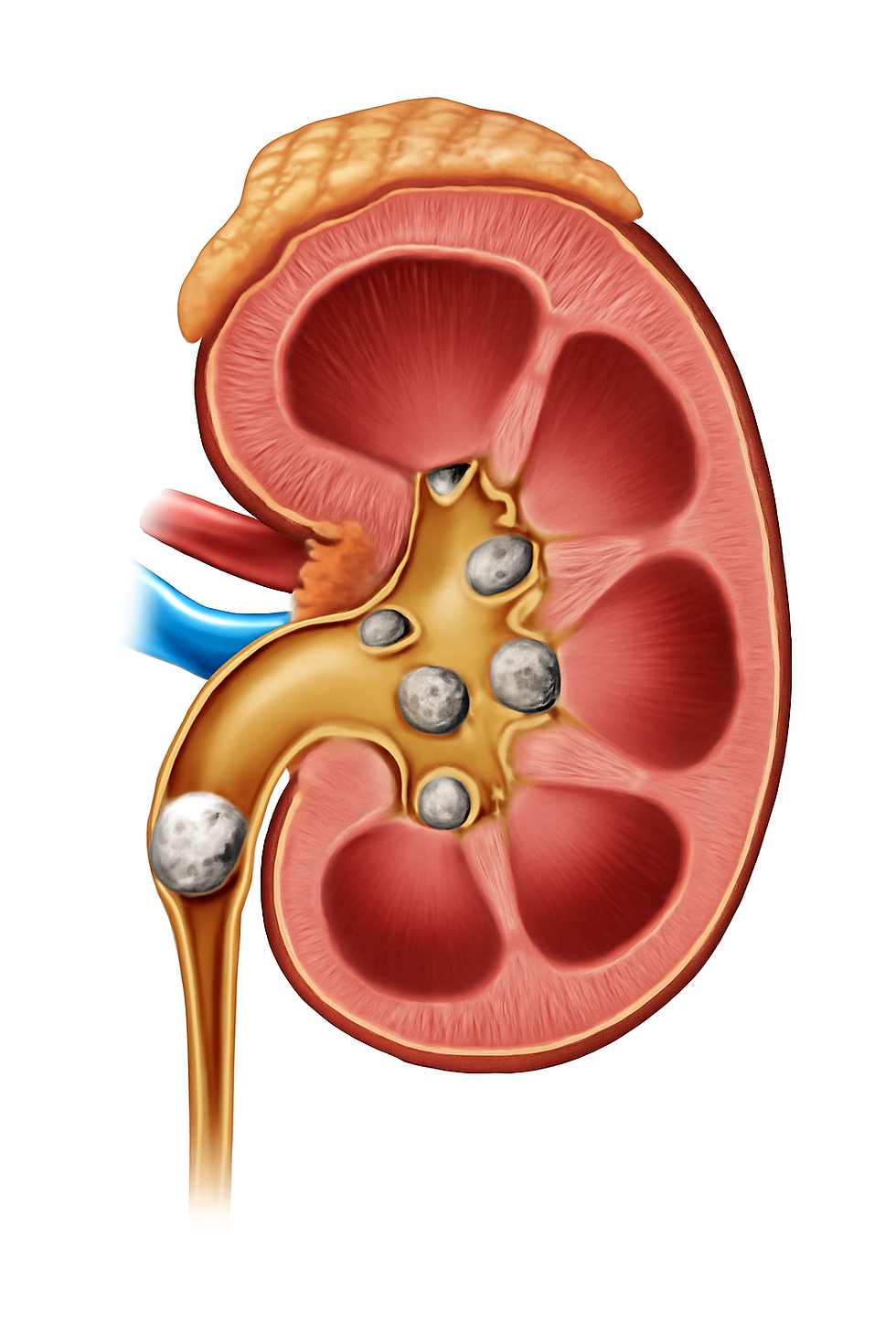Kidney stones
- Dr. Amol Kulkarni

- Aug 9, 2025
- 1 min read
Kidney stones are hard deposits made of minerals and salts that form inside your kidneys. They develop when your urine contains more crystal-forming substances, such as calcium, oxalate, and uric acid, than the fluid in your urine can dilute. Dehydration, certain diets, obesity, genetic tendency, and some medical conditions can all increase your risk of forming kidney stones.
Typical symptoms include severe pain in your side and back, below the ribs, pain that radiates to the lower abdomen and groin, painful urination, pink, red, or brown urine, nausea, and frequent urges to urinate. Some people may not notice symptoms until the stone moves within the kidney or passes into the ureter, causing blockages and pain.
Diagnosis often begins with a detailed medical history and physical examination. Imaging tests like CT scans, X-rays, or ultrasounds are used to locate and measure stones. Urine and blood tests might also be conducted to determine possible causes and check kidney function.
Treatment depends on the size, type, and location of the stone. Small stones may pass with increased fluid intake and pain relievers. Larger stones might require medical interventions, such as extracorporeal shock wave lithotripsy (ESWL), ureteroscopy, or, rarely, surgery. Preventive advice includes staying well-hydrated, dietary changes, and sometimes medications to help control mineral levels.




Comments